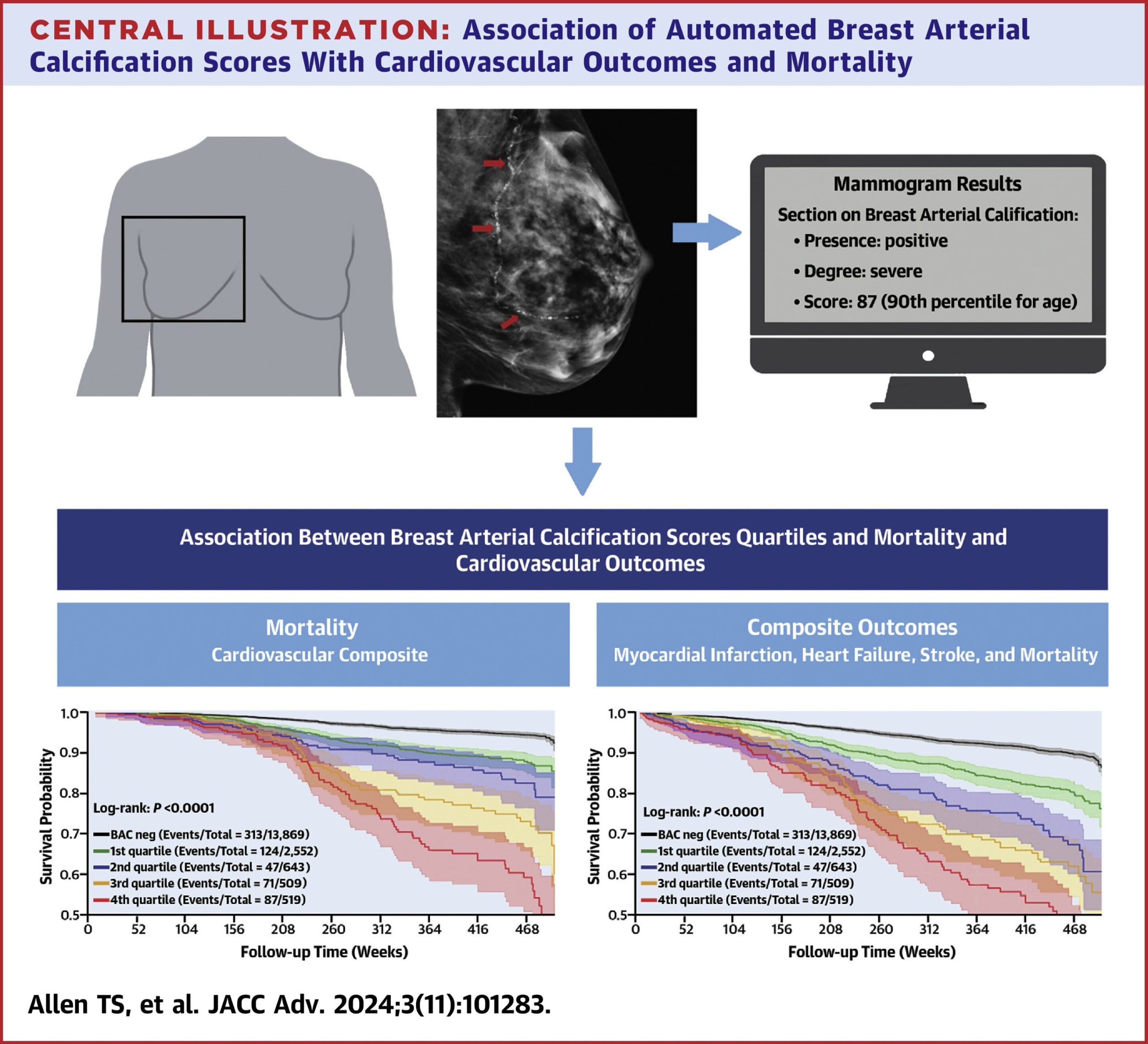
In a new study published Sept. 27 in JACC: Advances, researchers with University of California San Diego School of Medicine have found that mammograms could be used as a predictor of cardiovascular disease in women.
The retrospective study reviewed nearly 20,000 anonymized mammograms to measure the amount of breast arterial calcification (BAC), or calcium build up in the arteries of the breast, which has been historically viewed as an incidental finding on mammograms.
The results were then quantified by using an artificial intelligence-generated score and found that BAC was present in 23% of the cases. BAC is especially predictive of future cardiovascular events among younger women.
According to senior study author Lori Daniels, MD, cardiologist at UC San Diego Health, BAC is not yet an established cardiac risk factor, but she’s hopeful this research could help implement measurement of BAC into clinical practice in the near future.
More information:
Tara Shrout Allen et al, Automated Breast Arterial Calcification Score Is Associated With Cardiovascular Outcomes and Mortality, JACC: Advances (2024). DOI: 10.1016/j.jacadv.2024.101283
Citation:
Using mammograms to detect heart disease (2024, September 30)
retrieved 6 October 2024
from https://medicalxpress.com/news/2024-09-mammograms-heart-disease.html
This document is subject to copyright. Apart from any fair dealing for the purpose of private study or research, no
part may be reproduced without the written permission. The content is provided for information purposes only.

